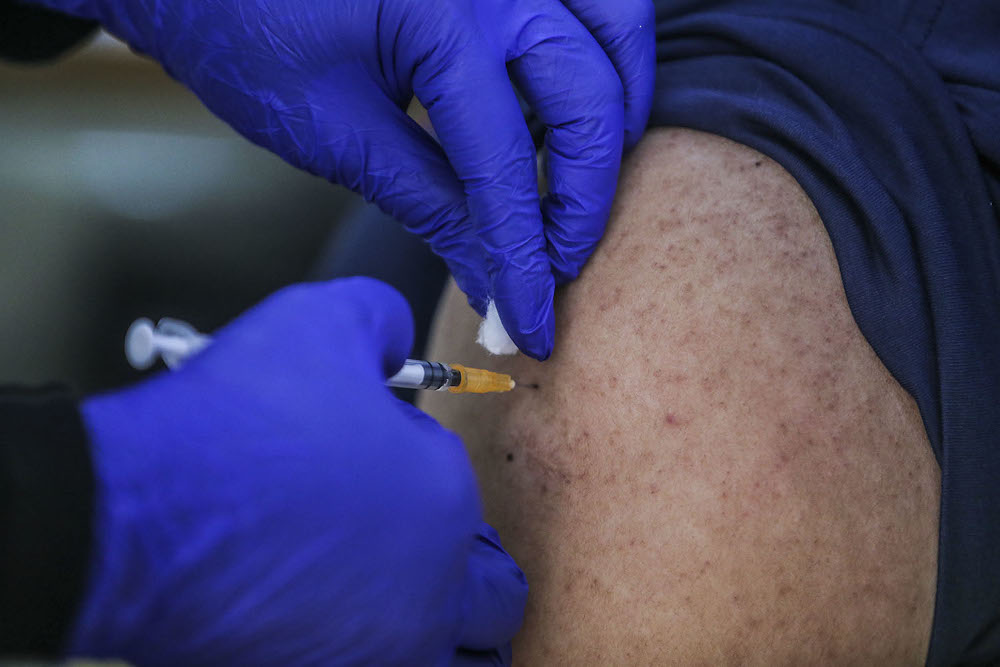MAY 29 ― Last week we invited a local activist and staunch advocate for senior citizens to speak to a group of postgraduate students. We had a two-hour discussion on various issues including life-long learning, long-term care, and empowerment of older adults. During the Q&A session, someone in the audience asked why the younger people were grabbing Covid vaccines when senior citizens should be first prioritized, given their higher risks of death upon contracting the disease.
The speaker then shared with us the “confusion” that many older adults currently face. On the one hand, they are aware of the danger of Covid-19 and how fast it can spread. But on the other, the “infodemic” ― the excessive information on Covid-19 that is bombarding them every day, including wrong information about vaccines ― is causing our seniors to have doubt and hesitancy toward vaccines.
Two days later, we received a phone call from a friend who has retired from civil service. She asked us if vaccine was necessary for her. We thought that question was rather strange, so we asked her what made her feel that way. She raised a number of concerns, which according to her, were also what her other friends were discussing in their Whatsapp groups:
First, some older adults were suspicious that AstraZeneca was offered to them, instead of Pfizer. “Why was Pfizer given to the frontliners, and AstraZeneca, to us?” Our friend had asked. “Why do we get something different? You know, that creates distrust and suspicion.”
Second was the issue of AstraZeneca’s side effects. “And what about the blood clots?” There was a frantic tone in her voice. “We are all worried. If we take it, will we get blood clots? We already have many problems. High blood pressure, diabetes, joint pain. Is it safe for those with multiple health problems to take the jab?”.
Third was the famous allegation that this whole Covid-19 and vaccination saga has a hidden agenda behind it. This did not come from that particular friend, but through a message that was circulating in one of our Whatsapp groups whose members were mostly elders. The core of this propaganda is that some people, somehow, are promoting vaccination as a way to exert control and domination over the world population. Even though many of the seniors in the group felt this was unlikely, they unanimously agreed that “it’s better to be safe than sorry”.
Throughout the intermittent lockdowns and movement restrictions, senior citizens have been disproportionately affected; they were more socially isolated and lonely. Elders in nursing homes have suffered even more given that visitors are restricted. This gives them less access to social interactions with loved ones which are essential for social and emotional support.
Now with the widespread hesitancy and low vaccine uptake among our elders because of the above-mentioned reasons, it is time that we act fast. Our seniors are at risk of getting Covid-19 and dying, and perhaps they are also the easier targets of pseudoscience, fake news and misinformation.
We need to stop relying on the Ministry of Health alone, because protecting our senior citizens ― our own parents and grandparents included ― is a collective duty. The younger generation must actively reach out to their parents and make sure they have the right understanding of vaccines. Take time to listen to their fears and concerns, and do not dismiss them. It is very likely that our own parents have heard anti-vaccine messages spread by their trusted circle of friends but in the end, the influence of children and loved ones usually takes the upper hand.
As the social media has become the main platform for disseminating misleading information that drives anti-vaccine attitudes, we must make use of the very same avenues to win the battle. We need to first know which platform is preferred by our seniors, and the nature of interactions they prefer. Similarly, we ought to understand what kind of narratives appeal most to the older population.
For instance, a common adopted approach by anti-vaccine groups is personal narratives. This method is generally considered ‘unscientific’ by doctors and health personnel, but it is without doubt impactful because the message is easy to understand, culturally-appropriate, and easily resonates with one’s daily experiences. While it is important that we stick to facts, communicating effectively with the older population needs a language that is simple, authentic and humanized.
Engagement with stakeholders who have a huge influence over senior citizens is equally important. We need to work with community leaders, ketua kampungs, Imams, priests, activists, and social media influencers who can easily reach out to, or are in constant touch with, older adults in their community. These figures are key in spreading the right message about vaccination, and in countering false information.
Amidst this health crisis and the sudden, massive shift to digital communications, it is urgent to devise communication strategies that are clever and effective. Health authorities and public health messengers need to “exploit” existing tools and platforms more efficiently than the anti-vaccine campaigners. To do this, we need to work collaboratively We need to engage everyone ― regardless of their background and expertise ― to build an environment of trust, where correct information thrives and we can march forward as one.
Vaccines can’t save lives unless people get vaccinated!
* This is the personal opinion of the writer or publication and does not necessarily represent the views of Malay Mail.






















